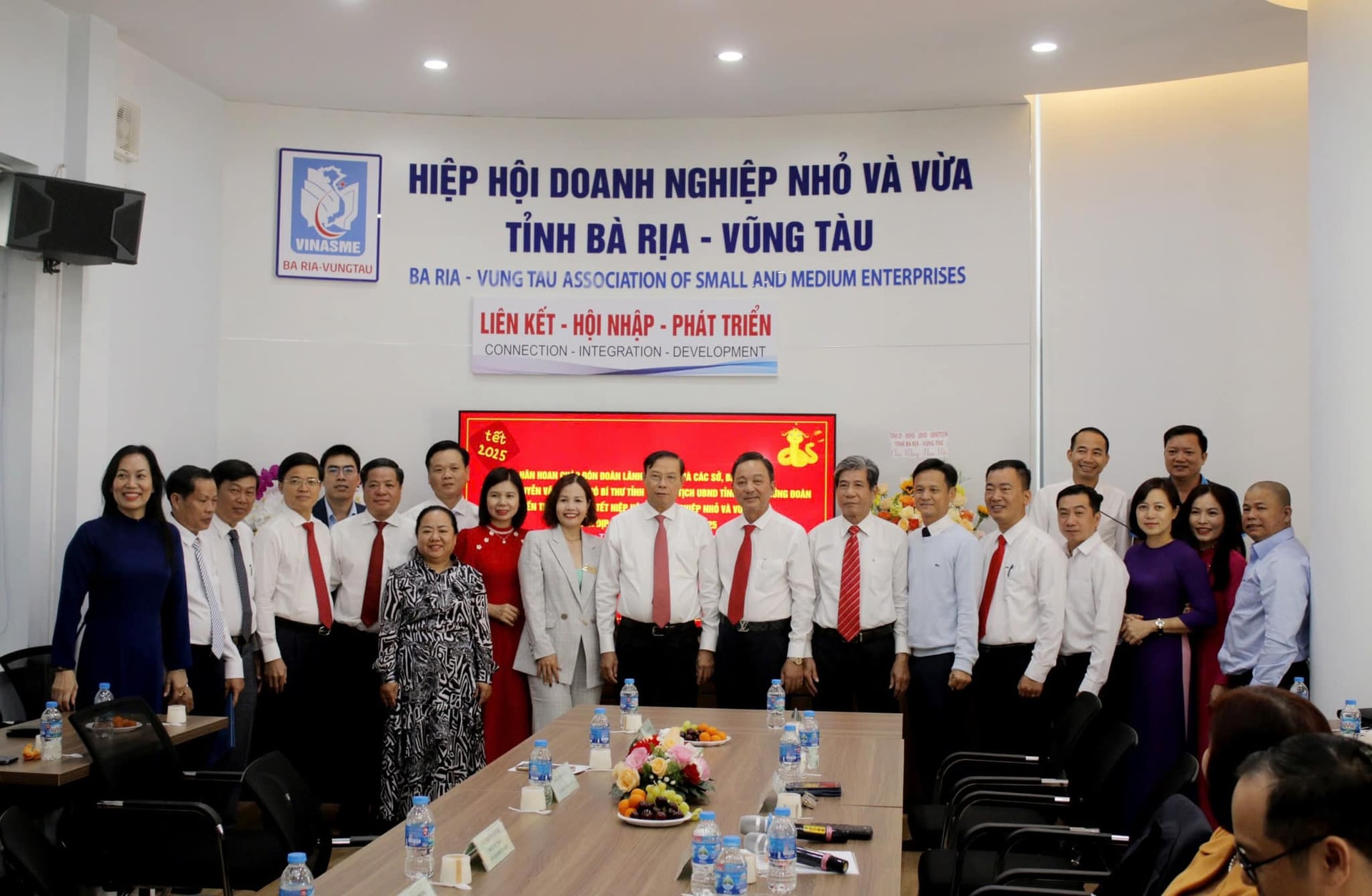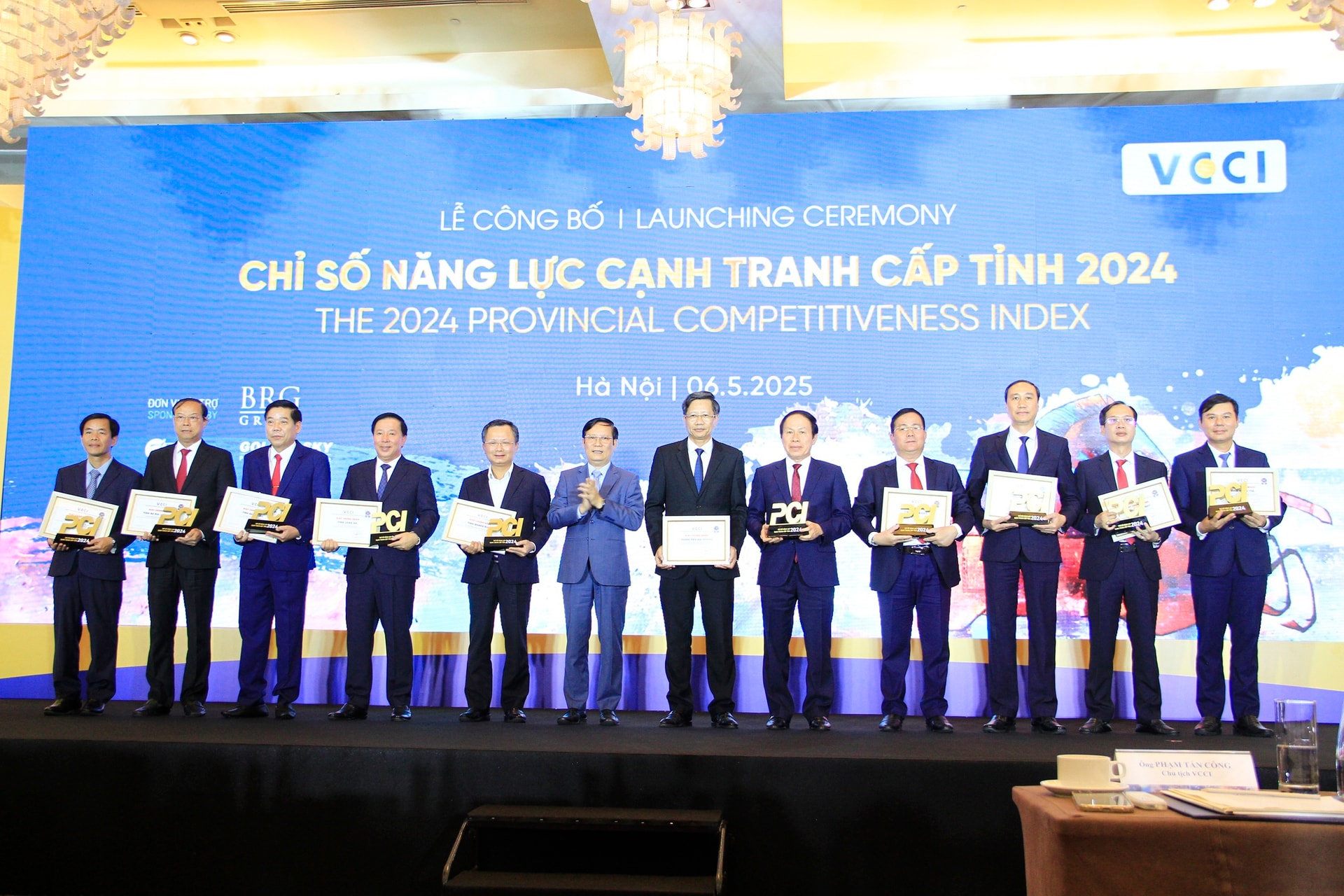Ba Ria – Vung Tau (HCM City): Business support and the vision from local authorities
Before its merger, Bà Rịa – Vũng Tàu had already made a strong mark with a series of business support policies, administrative reforms, and mechanisms for close cooperation with enterprises. These efforts helped to build trust and enhance local competitiveness.

On July 1, 2025, Bà Rịa – Vũng Tàu officially merged with Ho Chi Minh City, opening up a much larger development space for the region. Looking back, it is clear that the local authorities played a pivotal role in issuing policies and creating mechanisms to assist businesses, remove bottlenecks, and pave the way for them to enter a new stage of development, one more deeply integrated into the regional and national economy.
From Policies to Action
Prior to the merger, Bà Rịa – Vũng Tàu had firmly established its spirit of “standing side by side with businesses” through a range of programs and resolutions. A notable example was Decision No. 3641/QĐ-UBND, dated December 18, 2023, which approved a plan to support small and medium-sized enterprises (SMEs) in innovative start-ups during 2023–2025. The policy went beyond creating a favorable environment and provided tangible support such as funding, consultancy, investment linkage, management training, and technology innovation.
In parallel, the province launched Task Force 997, led directly by the Chairman of the Provincial People’s Committee, which held regular meetings to resolve business concerns. This was seen as a breakthrough initiative, putting administrative reform into practice. Many businesses acknowledged that thanks to this model, procedures related to land, taxation, and licensing had been significantly shortened, reducing pressure for investors.
The province also promoted measures to help businesses access capital, land, administrative services, and fire prevention and safety procedures. Close coordination with central ministries and agencies helped remove long-standing policy bottlenecks, creating favorable conditions for enterprises to expand investment.
Regular dialogue conferences with the business community became an effective two-way communication channel. Enterprises could directly voice their concerns, while local leaders committed to transparent follow-up and resolution, avoiding the perception of “promises left unfulfilled.” Bà Rịa – Vũng Tàu demonstrated that its support for businesses was not just rhetoric, but concrete action.
The effectiveness of these efforts was clearly reflected in the Provincial Competitiveness Index (PCI). In 2022, the province’s “Business Support Policy” indicator scored 6.03, which rose to 6.57 in 2023. By 2024, Bà Rịa – Vũng Tàu climbed to 5th place nationwide (out of 63 provinces and cities) with a score of 8.05, signaling strong and sustainable improvement. This was solid evidence of the local government’s commitment to working alongside businesses.

Enterprises as a Driving Force for Development and Integration
According to the Ho Chi Minh City SME Association, enterprises in the Bà Rịa – Vũng Tàu area continue to play a crucial role in the city’s economic landscape. They are not only producers and job creators, but also “bridges” attracting domestic and foreign investment.
With their deep understanding of the local context and networks, SMEs have become reliable partners for large-scale projects in seaports, logistics, energy, and supporting industries.
Mr. Phạm Văn Triêm, Chairman of the Ho Chi Minh City SME Association (and former Chairman of the Bà Rịa – Vũng Tàu SME Association), emphasized: “The strength of businesses here lies in existing advantages such as seaports, industrial parks, clusters, and logistics services. But there remain limitations, including weak ecosystem linkages, limited market information, and restricted access to capital and technology.”
He stressed that local authorities should view businesses as true partners, sharing both responsibilities and the fruits of development. When the government takes on the role of “connector, problem-solver, and trust-builder,” the business community can truly thrive. Conversely, if administrative procedures remain cumbersome and policies lack flexibility, local enterprises will fall behind their peers nationwide.
Toward a New Phase of Growth
As part of Ho Chi Minh City, Bà Rịa – Vũng Tàu now has greater opportunities to accelerate its growth. Yet the key remains in upholding the promise of partnership with businesses. Authorities must both maintain and expand existing support policies while leveraging Ho Chi Minh City’s broader resources to create new momentum. Administrative reform should be pushed further, with an emphasis on minimizing processing times and reducing transaction costs for enterprises.
Establishing a regional credit guarantee fund is critical to helping SMEs access financing more easily. Authorities must also allocate “clean” land for priority sectors such as high-tech industry, logistics, and supporting industries, while intensifying trade promotion and connecting local businesses with domestic and international markets.
Maximizing the potential of the Cái Mép – Thị Vải port system will be essential in positioning the area as a leading logistics hub, playing a strategic role in Vietnam’s maritime economy.
“Bà Rịa – Vũng Tàu has proven itself as a pioneer in building a transparent, business-friendly environment that truly stands by enterprises. After the merger, if this spirit is continued, the region can emerge as a ‘new star’ on Ho Chi Minh City’s economic map, helping the Southeast region reach new heights,” Mr. Phạm Văn Triêm concluded.








